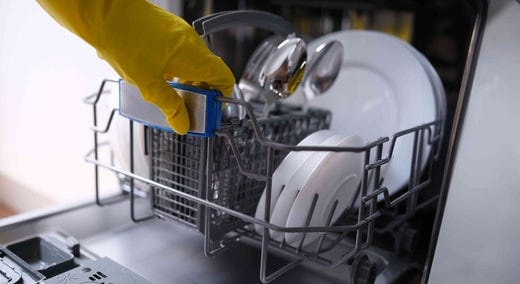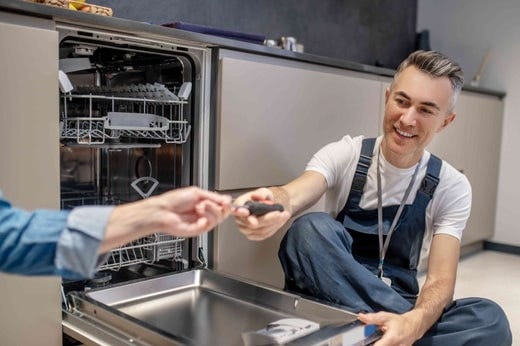
Hygiene Practices for Dishwasher Employees at Restaurant

In the bustling environment of restaurant kitchens, maintaining impeccable hygiene is a cornerstone of operational excellence.
Among the key players in this domain are dishwasher employees, who are tasked not only with cleaning dishes but also with upholding stringent cleanliness standards to prevent the spread of germs.
While these employees typically aren't directly involved in food handling, they may engage in minor food preparation tasks. Consequently, they must adhere strictly to established dishwasher hygiene and food safety guidelines.
This article delves into the essential hygiene practices that dishwasher employees must stick to, highlighting the critical aspects of personal hygiene to ensure a hygienic environment in restaurant settings.
Hygiene guidelines for dishwasher employees
To begin with, dishwasher employees must abide by strict personal hygiene guidelines. These include:
1. Hands and nails
Hands can quickly become contaminated, emphasizing the importance of frequent and thorough cleaning to mitigate germ transmission.
The most effective strategy to prevent the spread of infectious diseases is through regular hand washing. Remember to cleanse your fingernails thoroughly, as dirt trapped beneath them necessitates more attention than regular hand washing alone.
- Utilize a personal nylon brush to clean your nails meticulously
- Keep your nails trimmed to facilitate cleanliness
- Refrain from using nail polish to prevent chips from contaminating food
- Take care of hangnails to ward off infections
Dishwasher employees are required to wash their hands thoroughly as needed. Remember to wash your hands:
- Prior to beginning your shift
- Before touching food, washing dishes, or handling utensils
- Whenever your hands become soiled or exposed to germs or food debris—particularly after cleaning and disposing of trash
2. Using the bathroom
The primary responsibility of a dishwasher employee or food service worker is to wash their hands effectively after using the toilet or urinal.
Substantial quantities of microorganisms and pathogens can be transmitted through fecal matter or urine. Toilet paper is insufficient in preventing germ transmission to hands, as certain microorganisms can pass through it.
This has contributed to Hepatitis A outbreaks in the past, as the virus is present in feces well before symptoms manifest. Neglecting personal hygiene can result in extensive contamination.
3. Nose or mouth contact
Whenever you touch your mouth or nose, there's a chance of contaminating your fingers and hands. After such contact, it's important to wash your hands promptly. To prevent the transfer of microorganisms to your hands, avoid the following actions:
- Smoking
- Touching your nose
- Biting your fingernails
- Licking your fingers to pick up items like paper
- Running your hands through your hair, beard, or mustache
4. Sneezing or coughing
Microorganisms are released into the air and can settle on surfaces as a result of a cough or sneeze, potentially contaminating anything they touch. To prevent this:
- Use tissue paper to catch sneezes or coughs, then wash your hands immediately afterward.
- Note that microorganisms can pass through tissue paper onto your hands.
Avoid using cloth handkerchiefs to prevent re-contaminating your hands. Dispose of any food contaminated by a sneeze or cough immediately, and clean and sanitize any surfaces that come into contact with contaminated food.
.png?width=70&height=45&format=png&quality=50)


